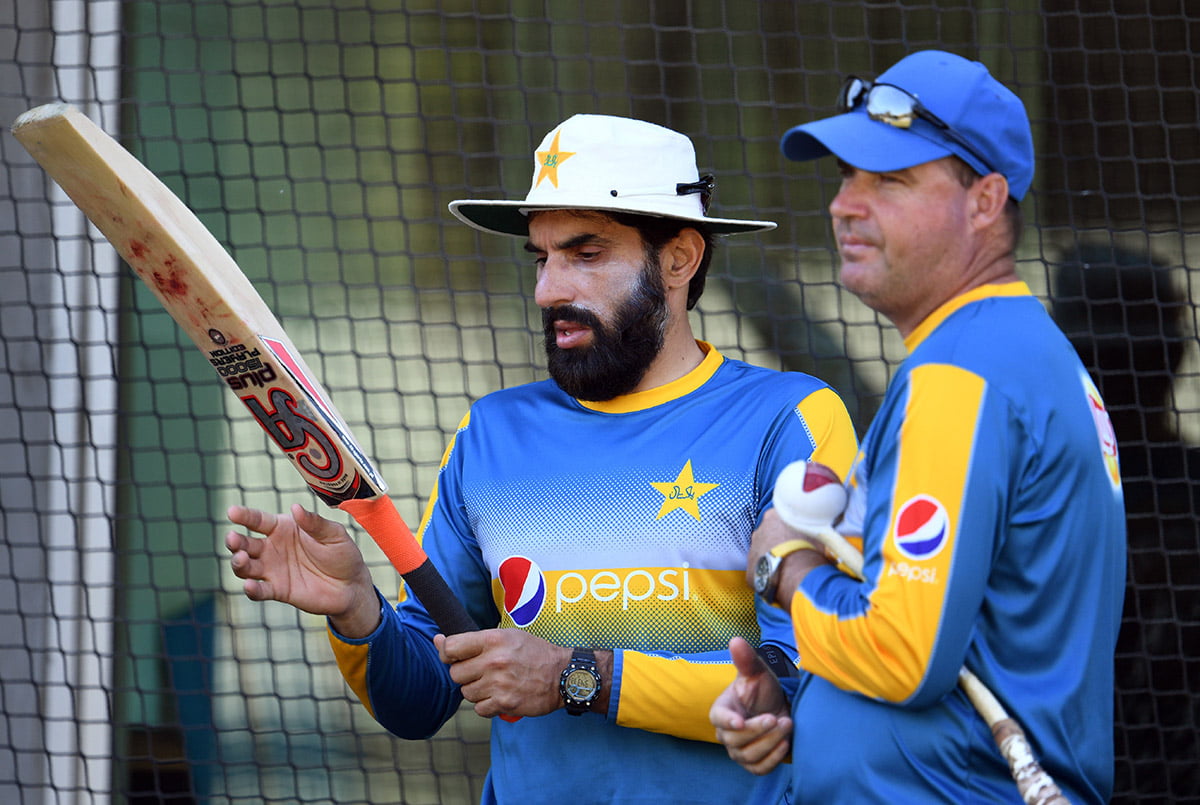Pakistan’s 4th consecutive whitewash in Australia proves one point beyond any doubt. Australian cricketers have a psychological hold over Pakistan players in their own backyard that has, no parallel in history of the game. Whilst growing up, one was horrified to find the details of the 1972-73 three-nil whitewash with Ian Chappell and Intikhab Alam, the respective captains, not realising a far worse sequence was to follow at the beginning of the 21st century.
Dr. Khadim Baloch, who watched the 1995-96 series in Australia and developed close relationship with Pakistan players, vents his frustration, ‘I have been stressing the need of a sports psychologist for the last two decades. Modern day demands on cricketers have multiplied tenfold. Pakistan ways of coping with the pressure situations takes them back to the 1970s and 1980s. The rash and irresponsible batting and indiscipline bowling would not occur so frequently, if Pakistan players, toughen up mentally. We can’t carry on with these amateur ways. It is ridiculous with a dozen or more officials accompanying the playing squad without someone attending the psychological needs of the players.’
The last four tours Down Under – 1999-2000 (Wasim Akram), 2004-05 (Inzamam-ul-Haq), 2009-10 (Mohammad Yousuf) & 2016-17 (Misbah-ul-Haq). have tested the mettle of Pakistan leadership, which has come out with very little credit. What made the latest debacle so painful is the fact that Australia is no longer the force it used to be and after 5 successive Test defeats against Sri Lanka and South Africa, had no choice but to inject some fresh blood. The Pakistan team management, led by coach Mickey Arthur, captain Misbah-ul-Haq and manager Wasim Bari, failed to take any advantage of this opportunity. Asked to survive for a merely 4 ¼ hours in not so difficult batting conditions, with four world-class batsmen in its ranks and in a Test that had been hit by bad weather, Pakistan in some miraculous madness, conjured up a defeat from nowhere. This perhaps will be a nadir point in Misbah’s 6-year reign as the national captain.
Pakistan team management also failed to pay tribute to Imtiaz Ahmed, the wicket-keeper batsman, who passed away in Lahore on 31st December. Imtiaz alongside skipper A.H. Kardar, Nazar Mohammad, Hanif Mohammad and Fazal Mahmood, was a key component of the national side that justified Pakistan’s elevation to a Test nation in 1951, just four years after its independence from the British rule of the sub-continent. The cavalier approach adopted, with the bat, by present wicket-keeper Sarfraz Ahmed is simply an extension to the sequence that has had the likes of Imtiaz Ahmed, Salim Yousuf, Moin Khan Rashid Latif and Kamran Akmal, before him. Both PCB and Pakistan team management have shown their ignorance in this matter, all the more, with Wasim Bari, himself a wicket-keeper and a great fan of Imtiaz Ahmed, travelling as a team manager. A black arm band would have been appropriate.
When the intensity dropped due to the fact that the Test series had been lost, Pakistan bowlers and batsmen were almost ridiculed by the Australians, kicking off with David Warner, smashing a 100 before lunch on the first morning of a Test at Sydney. It is a bewildering fact that Pakistan’s own Majid Khan, that silky stylist of his times, was the last batsman to do so which he achieved against New Zealand at Karachi in 1976-77. It was one record that eluded the likes of Virender Sehwag and Chris Gayle and other rapid-scoring batsmen of the modern times. It took Warner 60 Test matches to produce such knock is another shocker, for the Australian has the ability and confidence to simply go all-guns-blazing from the word go, against all types of bowling. The answer to that perhaps is that one has to play almost a perfectly aggressive innings in such a short space of time and that indeed is a rare.
Misbah’s standing in Pakistan cricket team is a tricky one, for a 42-year old naturally, is being asked about his retirement, each time he talks to the media. We all know it is imminent. In the last six months he has twice resisted the temptation to quit. The Oval in England provided a perfect opportunity to say goodbye on a high and now another one at MCG, after an unexplainable demise. Given the fact that he keeps his emotions very much in control and carries himself in a very dignified way, one hopes he chooses, the right moment to call it a day. In the hindsight, with six Test defeats now against the team, it would have made a great deal of sense to prepare Azhar Ali for challenge Down Under by appointing him captain for the series against West Indies in UAE and then it would have given him another two Tests in New Zealand.
If Misbah’s presence was so badly required to hold the team together, which he has done so magnificently whilst working alongside a number of coaches including, Mohsin Khan, Dave Whatmore, Waqar Younis, and now Mickey Arthur, he could have been slotted in at number six, whilst playing as an ordinary member of the side and assisting and mentoring Azhar Ali. The harsh reality is that Misbah, whose reflexes are not as sharp as they used to be, both in the field or as a batsman, has gone past his sell-by-date. Now with three relatively ‘soft’ tours of West Indies, Bangladesh and Sri Lanka to look forward to, it provides him a window of opportunity to redeem his failures in the recent past. Who knows?
